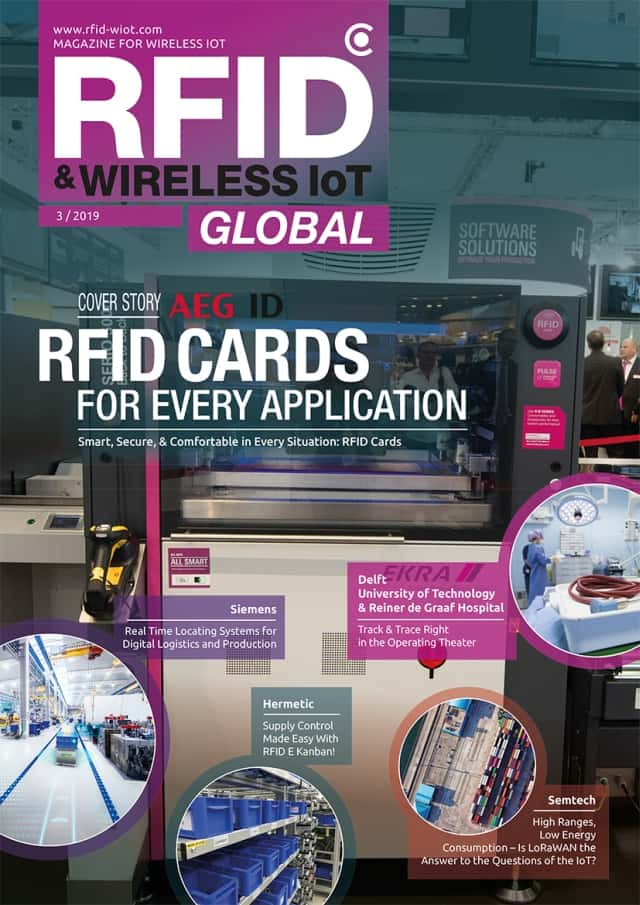RFID & Wireless IoT in Logistics
Transformation into digital processes via contactless technology!
Use cases with Old Kempton Whiskey Distillery, Hermetic Pumps, and Reiner de Graaf Hospital as well as content from AEG ID, Siemens, Kathrein Solutions, Semtec, and Elatec on LoRaWAN, RTLS, RFID Cards and remote maintenance.
In this issue
Dear readers,
The main topic of the May/June 2019 issue highlights numerous logistical processes. These include solutions from the hospital sector, industry, material procurement, automobile production, inventory logistics or the location of load carriers, forklifts and vehicles.
What all the articles in this issue have in common is the transformation of paper-based into digital processes via contactless technology. Controllability, transparency, time-efficacy, and, above all, correctness – these are the results of this transformation of logistics processes. RTLS also offers additional optimisations and transparency gains.
However, the majority of these applications are limited to companies with clearly defined processes. The clinic, the pump manufacturer and the warehouse are concretely defined functional areas with recurring processes. But what about cross-company logistics processes – for example, the acceptance of goods by a commissioned logistics service provider such as Schnellecke?
Questions about cross-company standards are rightly asked. The logistical processes within the company's own borders in a closed cycle are controllable and can now be optimised with contactless technology without any reservations or overboarding effort.
Extending these processes to external logistics providers such as freight forwarders or service providers is the next important step in the optimisation process.
In concrete terms, automobile production is about to take this step in the course of the coming quarters. Hundreds of suppliers are being urged to deliver components tagged to the automobile manufacturer and thus change the entire supply chain. An objective that will have an immense impact on all logistical processes and can embody cooperation between companies in an exemplary manner.
This is hardly the case at present, as many companies see the value of cooperative processes, but overestimate the financial and systemic effort involved and consider the resulting benefits for their own companies to be still too low.
However, if companies want to become more digital in order to withstand competitive pressure and implement new digital business models, they must implement technology that supports digital processes. In the context of this transformation, cooperation with others is a mutually beneficial approach.
Especially in times of political demarcation and limitation, business can send out positive signals through cooperation and mergers and demonstrate that these are the levers of success.
In this sense, the solutions and optimisations presented in this issue point the way towards a comprehensive approach to the cross-company supply chain of the future.
Anja Van Bocxlaer
Chief Editor RFID & Wireless IoT Global













